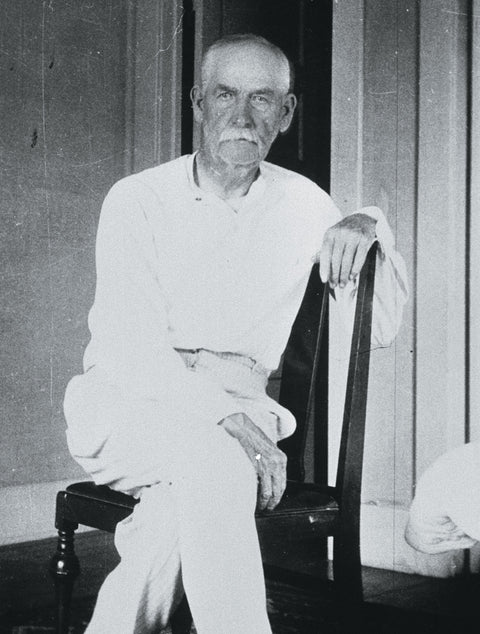
7 Fascinating Figures of the Klondike Gold Rush
Wyatt Earp
Wyatt Earp
The “Lion of Tombstone” was over the hill, pudgy and graying when he headed for the Klondike in 1897, initially accepting a temporary stint as a lawman in Wrangell, Alaska. He and a pregnant Sadie, his common-law wife, turned back at Juneau. A year later they again tried for the Klondike, setting out on the “rich man’s route” up the Yukon River from St. Michael, Alaska, before becoming iced in that winter with boxing promoter Tex Rickard and novelist Rex Beach. Finally giving up on the Klondike, the Earps joined the Nome Gold Rush, Wyatt and a partner opening the two-story Dexter Saloon.
Jack London
Jack London
If London hadn’t ventured north, he would have been forever linked to maritime literature for his 1904 novel The Sea-Wolf. On arrival in the Klondike in 1897 he was no longer the young innocent. Among other escapades, he helped save a family from drowning on the Yukon River and spent weeks patronizing Klondike saloons. A year later, broke and battling scurvy, he continued downriver to the Bering Sea and worked his way home to California on a steamer. London was not only a great writer, but also the real deal.
Bill McPhee
Bill McPhee
(facing camera)
McPhee drifted into the Yukon in 1888 and later opened saloons in Forty Mile, Dawson City and Fairbanks. He grubstaked such successful prospectors as C.J. Berry and Frank Dinsmore, Berry later returning the favor by paying to rebuild McPhee’s fire-ravaged Fairbanks saloon. During the bitterly cold winter months McPhee transformed his Dawson saloon into housing for the poor, saving their lives. Not until 1921 did age and failing eyesight finally force the saloonman into retirement in San Francisco.
Jefferson “Soapy” Smith
Jefferson "Soapy" Smith
Elbowed out of Denver in 1897, Smith and gang headed north for the Klondike just as it boomed. Soon he controlled both Wrangell and Skagway through murder, intimidation and imaginative con jobs. It all proved bad for legitimate business, as homebound prospectors instead opted for the onward Yukon River route. Soapy met his end in a classic 1898 gunfight with vigilante Frank Reid on Skagway’s Juneau Wharf.
Clarence “C.J.” Berry
Top dog of the “Klondike Kings,” Berry started out as one of McPhee’s bartenders before the saloonman grubstaked him. C.J. found so much gold that he reportedly left a bucket of nuggets and a bottle of whiskey outside his cabin with a sign reading, Help Yourself. Unlike most riches-to-rags prospectors, however, he invested in oil-rich properties in California, exponentially increasing his fortune.
Harriet Pullen
Harriet
Pullen
The pioneering Pullen arrived in Skagway with only $7 and began making pies to sell to prospectors. With her profits she bought a cabin, sent for her husband and four kids and started a freighting business hauling goods over the White Pass Trail. When the rush subsided, she opened the Pullen House. Catering to high society, the hotel made Harriet and family a fortune. She died there in 1947.
Sam Steele
Sam Steele
The enduring image of the Mounties stems from the Klondike, and the superintendent of the North-West Mounted Police division in the Yukon was Steele. With relatively few men the no-nonsense Steele established customs posts atop passes into the Yukon, ensured prospectors brought enough goods to support themselves and tamped down on crime, bringing order out of disorder.
